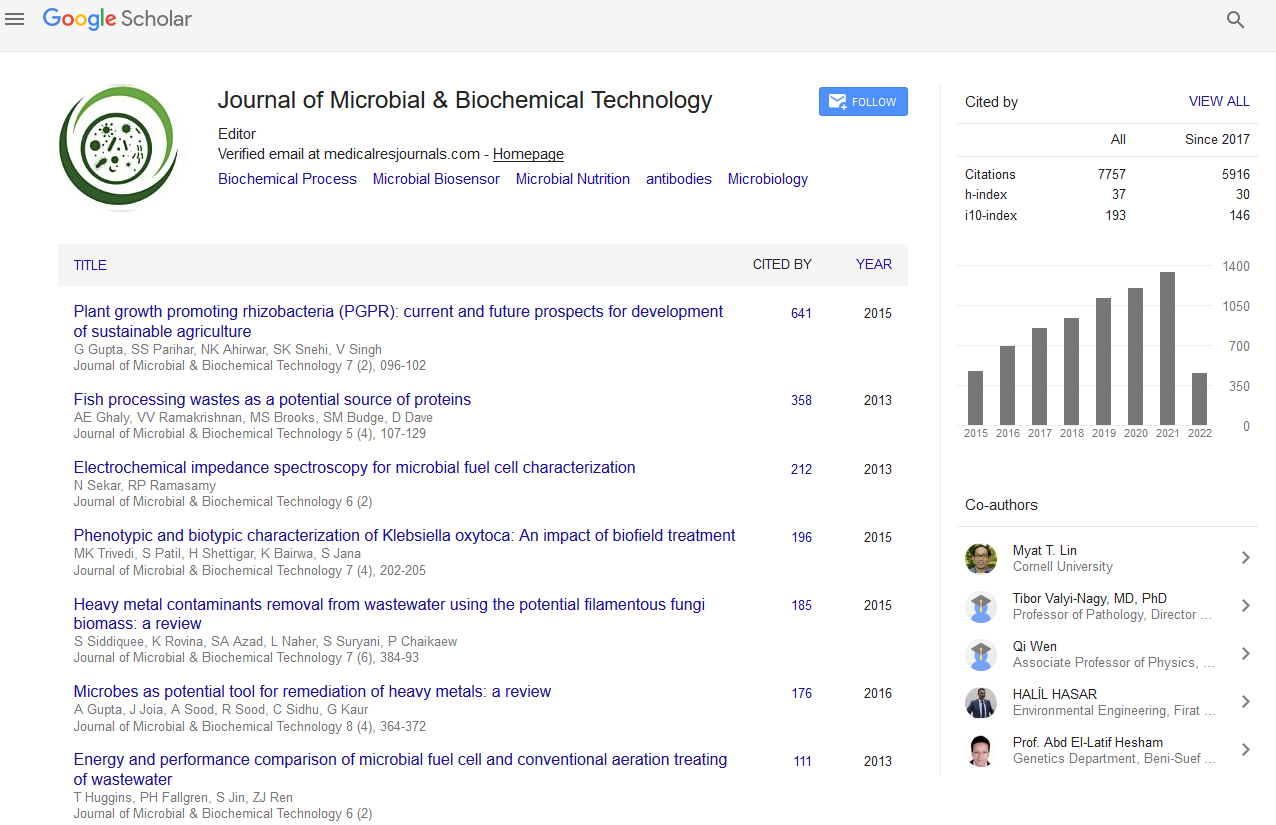PMC/PubMed Indexed Articles
Indexed In
- Academic Journals Database
- Genamics JournalSeek
- Academic Keys
- JournalTOCs
- China National Knowledge Infrastructure (CNKI)
- Scimago
- Access to Global Online Research in Agriculture (AGORA)
- Electronic Journals Library
- RefSeek
- Directory of Research Journal Indexing (DRJI)
- Hamdard University
- EBSCO A-Z
- OCLC- WorldCat
- SWB online catalog
- Virtual Library of Biology (vifabio)
- Publons
- MIAR
- University Grants Commission
- Geneva Foundation for Medical Education and Research
- Euro Pub
- Google Scholar
Useful Links
Share This Page
Journal Flyer

Open Access Journals
- Agri and Aquaculture
- Biochemistry
- Bioinformatics & Systems Biology
- Business & Management
- Chemistry
- Clinical Sciences
- Engineering
- Food & Nutrition
- General Science
- Genetics & Molecular Biology
- Immunology & Microbiology
- Medical Sciences
- Neuroscience & Psychology
- Nursing & Health Care
- Pharmaceutical Sciences
Abstract
Effect of Levofloxacin and Vitamin C on Bacterial Adherence and Preformed Biofilm on Urethral Catheter Surfaces
Eman El-Gebaly, Tamer Essam, Shabaan Hashem and Rehab A. El-Baky
Catheter associated urinary tract infection (CAUTI) is one of the most common types of hospital acquired infection. Several studies have confirmed its significant contribution in increasing the morbidity, mortality, hospital stay and costs. The normal function of the urinary tract is usually altered by the presence of a catheter and this makes it easier for bacteria to become established in the bladder and cause serious infection. A wide range of persistent catheter related infections may be related to the ability of bacteria to form biofilms. In this regards, the treatment of device related infections with conventional antimicrobial agents frequently fails because microorganisms growing in biofilms are more tolerant or phenotypically resistant to antimicrobial agents than planktonic (free) cells. A mature biofilm can even tolerate antibiotics at concentrations of 10-1000 times more than required to kill planktonic bacteria. In this regard, fluoroquinolones (The most common clinically used members of the quinolones antibiotics) have been reported as an effective treatment in case of both young and mature biofilms because of their good penetrative qualities. Norrby et al. have reported that among the recently developed fluoroquinolones, levofloxacin is widely used in clinical practice and it is less likely to select resistant strains compared with other group members. Therefore, levofloxacin represent a promising candidate to treat tedious infections such as those of biofilm forming bacteria.


